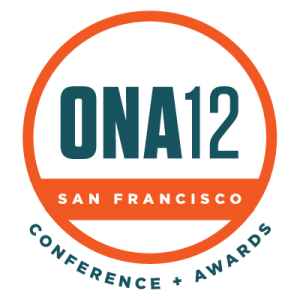Tabitha Messick Childs, a 3L at the UNC School of Law (and my former research assistant), spent her summer at the Berkman Center’s Digital Media Law Project. At my urging, she wrote the following summary of her experience. Our hope is that it will be useful to other students considering summer jobs in media law.
From Tabitha:
My 2L summer at the Digital Media Law Project (DMLP) at the Berkman Center for Internet & Society (based at Harvard University in Cambridge, MA) was simply amazing. I’ve known about the Berkman Center for years, and have frequently used the resources at DMLP (formerly the Citizen Media Law Project). I would have never imagined that I would have the opportunity to work there.
I came to law school with an interest in media law, Internet policy and privacy issues. I am a 2007 graduate of UNC’s School of Journalism and Mass Communication. I chose to enroll at UNC School of Law because of its media law curriculum and because of the Center for Media Law & Policy.
In the spring of my 2L year, I applied to the Berkman Center knowing it was a “dream job,” and I was honored to get an interview and offer. The summer experience exceeded all expectations I had. I was challenged, I met amazing people, and it gave me invaluable legal experience as I pursue a career path involving media law.
The atmosphere at Berkman was incredibly inspiring. There was never a “typical” day, but I liked it that way. Berkman is home to many projects, and with an intern class of 47, every day was a new adventure. It was very collaborative; interns worked in shared workspace, so each day I gained insight from the person sitting beside me and across from me.
There were two other DMLP interns, Natalie and Kristin, who are now my lifelong friends. My supervisors, Jeff and Andy, were incredibly brilliant, always helpful, and I gained practical insight and analyzing skills by working alongside them. I usually learned more by simply listening to their discussions about current issues than being in a classroom! It was great to be surrounded and supported by this group. The DMLP door was always open, and we stayed in constant contact about projects I was working on.
Speaking of projects, I worked hands on with many digital media law and First Amendment issues. Each week, DMLP had a meeting and delegated many different tasks and deadlines to interns. I was always busy and working on many different projects simultaneously! But the work was stimulating, interesting and challenging. For example, I researched, drafted and edited new sections of DMLP’s state-by-state legal guide, including defamation and right of publicity issues.
I was also honored to be able to conduct legal research for the Guide to Reporting at the 2012 RNC & DNC. I researched issues relating to the 4th Amendment and cell phone and camera searches, and the public forum doctrine.
I also assisted in the expansion of the Online Media Legal Network (OMLN). I was delegated with finding lawyers in South Carolina where OMLN still lacked legal representation. I researched and reached out to lawyers in South Carolina, and am happy to report OMLN now has legal representation there.
One of my favorite projects to work on was the legal threats database. There I researched, drafted and edited recent threats to online speech, including recent lawsuits like the “Facebook likes” case. I read through pleadings, briefs and motions and wrote an objective account of the potential threats.
The other interns and I contributed a lot as DMLP staff to the greater DMLP community, but it was the blog posts that felt like my own (and my name was attached!). This process was a fun and important part of the internship. I spent a lot of time thinking about, analyzing and drafting my blog posts. I wrote on defamation by omission, electronic service of process, and trademark issues related to the United States Olympic Committee’s exclusive use of the word “Olympics.”
But it wasn’t all just work!! We went to conferences and court hearings, as well book talks and weekly “intern hours” with the entire intern class. I participated in the broader Berkman community by taking part in a group intern summer-long project on Internet censorship. Working on the group project was fun because it made me understand the underlying dynamic at Berkman and what makes it so special: always working and learning from other people and across diverse projects. I learned so much and met many colleagues and friends from these experiences.
Leaving Berkman was bittersweet. I still feel a part of a big community, but it was hard to leave such a dynamic atmosphere. I am honored to be a part of the community and will forever be a 2012 “Berktern.”

